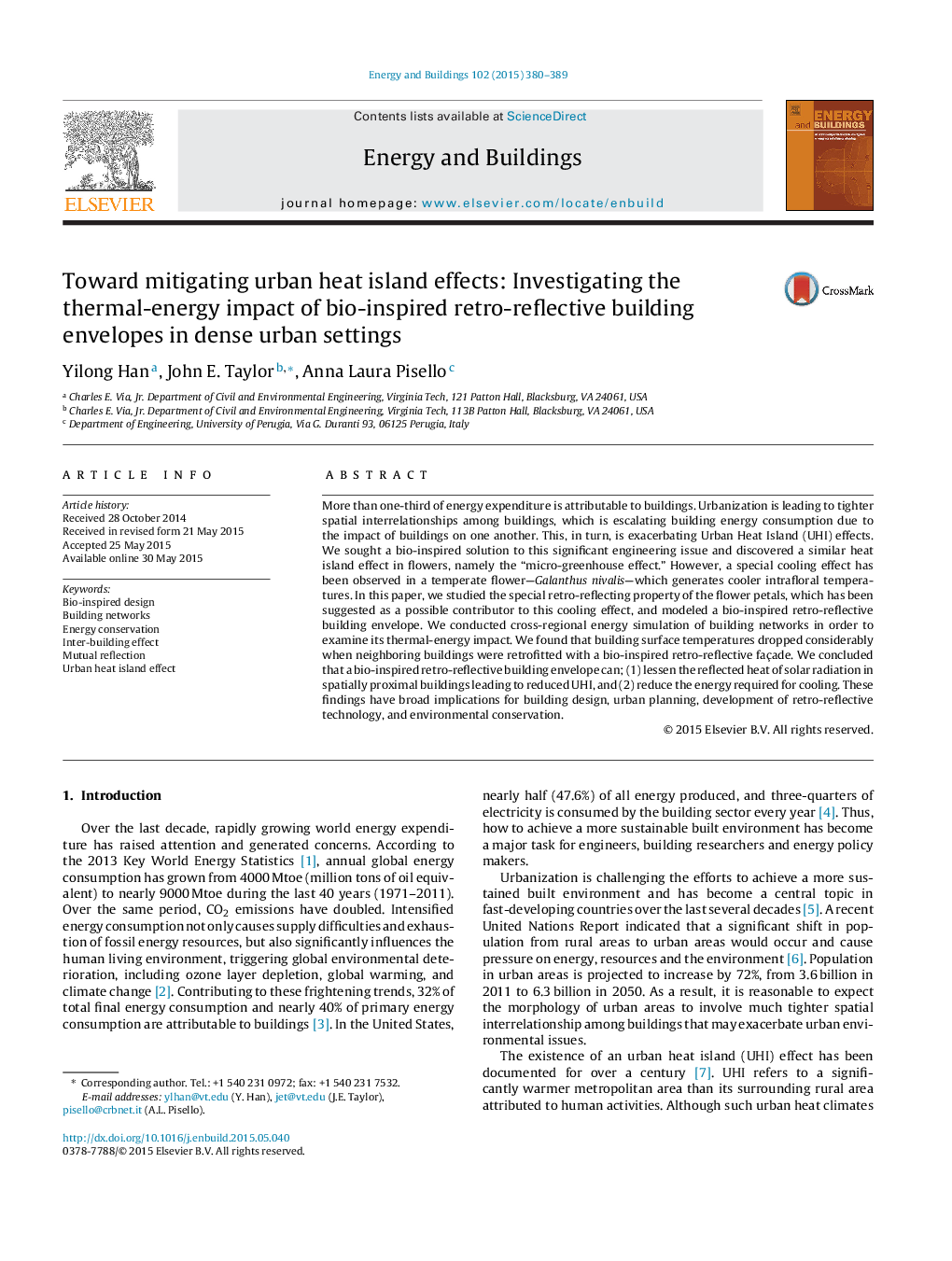| Article ID | Journal | Published Year | Pages | File Type |
|---|---|---|---|---|
| 262551 | Energy and Buildings | 2015 | 10 Pages |
•Botanical systems exhibit micro-greenhouse effects similar to urban heat islands.•We examined the reflective phenomenon in a peculiar flower, Galanthus nivalis.•We simulated a similar retro-reflective (RR) building envelope in an urban context.•Building surface temperatures reduced and cooling energy requirements decreased.•Bio-inspired RR building envelopes may help mitigate urban heat island effects.
More than one-third of energy expenditure is attributable to buildings. Urbanization is leading to tighter spatial interrelationships among buildings, which is escalating building energy consumption due to the impact of buildings on one another. This, in turn, is exacerbating Urban Heat Island (UHI) effects. We sought a bio-inspired solution to this significant engineering issue and discovered a similar heat island effect in flowers, namely the “micro-greenhouse effect.” However, a special cooling effect has been observed in a temperate flower—Galanthus nivalis—which generates cooler intrafloral temperatures. In this paper, we studied the special retro-reflecting property of the flower petals, which has been suggested as a possible contributor to this cooling effect, and modeled a bio-inspired retro-reflective building envelope. We conducted cross-regional energy simulation of building networks in order to examine its thermal-energy impact. We found that building surface temperatures dropped considerably when neighboring buildings were retrofitted with a bio-inspired retro-reflective façade. We concluded that a bio-inspired retro-reflective building envelope can; (1) lessen the reflected heat of solar radiation in spatially proximal buildings leading to reduced UHI, and (2) reduce the energy required for cooling. These findings have broad implications for building design, urban planning, development of retro-reflective technology, and environmental conservation.
